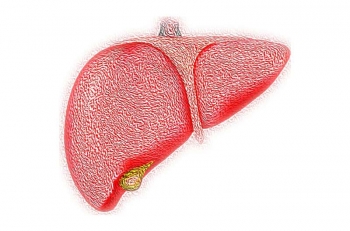Study finds dietary changes quickly alter brain markers linked to memory and inflammation

A new study from researchers at The University of Texas at Austin reveals that following a low-calorie or low-carbohydrate diet can measurably lower levels of brain chemicals that, when too high, are linked to inflammation and memory problems.
Web URL: Read this article on Medical Xpress
FAB RESEARCH COMMENT:
This study - involving patients with 'Metabolic Associated Fatty Liver Disease' (MAFLD) - found that not only liver health, but brain function, improved within just two weeks of following a low-calorie or low-carbohydrate diet.MAFLD - previously known as Non-Alcoholic Fatty Liver Disease - now affects alsmot 40% of US adult, and around 15% of US teenagers, and is strongly associated with obesity and Type 2 diabetes - and also with impairments of attention, memory and cognitive function.
Almost all patients showed significant reductions in liver fat over the 2-week period, and most also showed reductions in key brain metabolites glutamate and myo-inositol - as assessed via Magnetic Resonance Spectroscopy.
In excess, glutamate and and myo-inositol in excess are known to have pro-inflammatory and neurotoxic effects that can contribute to the cognitive impairments associated with fatty liver, so this finding that even short term dietary changes can reduce levels of these metabolites is an important one.
The research team are now planning larger-scale trials - but in the meanwhile, as the lead author said:
"We hope this motivates both clinicians and individuals to take early action on metabolic health, not only to protect the liver but also to support long-term brain function,"
Read the underlying research here:
You may also be interested in these related articles:
And see also the book by Professor Robert Lustig, a pioneer in both research and clinical practice in this area:
01/10/25 - Medical Xpress
------------------------------
A new study from researchers at The University of Texas at Austin reveals that following a low-calorie or low-carbohydrate diet can measurably lower levels of brain chemicals that, when too high, are linked to inflammation and memory problems.
The study followed a cohort of patients with an early-stage fatty liver disease, which is linked to changes in brain metabolism that can contribute to cognitive symptoms.
The study participants adopted a low-calorie or low-carbohydrate diet for just two weeks and then were screened to see if their brain metabolism markers had improved.
"We found that reducing liver fat through short-term dietary changes also lowered levels of certain brain metabolites that can signal inflammation and neurotoxicity when elevated," said Andreana P. Haley, professor of clinical psychology at UT Austin and the lead author of the study published in Metabolic Brain Disease.
"Nearly all participants with early-stage liver disease improved, suggesting that diet may protect brain as well as liver health."
The liver condition, known as metabolic dysfunction-associated steatotic liver disease (MASLD), is the most common chronic liver disease globally, affecting an estimated 38% of adults.
It is often linked with cognitive symptoms such as reduced attention and impaired executive function, including trouble organizing daily activities or losing track of tasks.
These symptoms can be caused by changes in brain metabolism linked to higher-than-normal levels of neurometabolites such as cerebral glutamate and myo-inositol.
In the study, participants with MASLD underwent a health screening and brain and liver MRI imaging before being randomly assigned to follow either a low-calorie or a low-carbohydrate diet. After two weeks on the diet, respondents were screened again to assess whether the dietary change had lowered their levels of liver fat and neurometabolites.
The researchers found that 97% of the participants with MASLD experienced a decrease in liver fat, 77% experienced a decrease in glutamate, and 70% experienced a decrease in myo-inositol.
"We were struck by how quickly the brain responded," said Haley. "In just two weeks, we saw measurable improvements in brain metabolites, something that had only been speculated about before."
With MASLD projected to affect 55% of the world's adults by 2040, these findings come at a time when researchers are working to better understand both how metabolic health affects the brain and how the brain can be protected. This study, Haley said, offers encouragement on both fronts.
"Even short-term, achievable dietary changes may reduce brain processes that contribute to cognitive decline.
"We hope this motivates both clinicians and individuals to take early action on metabolic health, not only to protect the liver but also to support long-term brain function," she said.
"And this proof-of-concept study is the foundation for a larger clinical trial we are now proposing to determine whether there are especially sensitive periods across the lifespan when dietary interventions can make the greatest difference."
